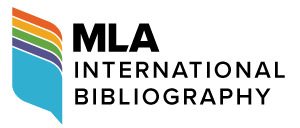Dossier
The Editorial Committee informs that the call for papers for the fourth issue, with the axis Irruption of queer theory in language studies, is open until May 22, 2023.
About the works
During the development of the academic trajectories of undergraduate and graduate students in Literature, Linguistics and related fields, texts are born that can be and in fact are plausible to be continued and expanded in subsequent research. Our proposal is that these works, if the writers so wish, may be revisited for publication in Alma Máter. However, we request that they not be sent as they were, but that a rewriting and rereading of the subject be produced, in order to adapt to the guidelines of the call for papers. The journal also reserves the right to propose style or editorial corrections to the contributors for the publication of their text.
Publication in Alma Máter does not preclude subsequent publication in other venues.
Works will be received only in Spanish. If terms or quotations in other languages are used, or if the object of study is a language other than Spanish, please provide a translation according to the examples given or the corpus of study.
Texts may be submitted in the following formats:
Articles
Papers in which one or more original hypotheses are developed from the analysis of diverse linguistic materials. It should include the introduction of the problem to be investigated; the objectives and hypotheses; the materials and constitution of the corpus or data to be analyzed; the methodology or modalities of work; the analysis itself and the conclusions. Its minimum length should be 5 pages and its maximum length should be 15 pages.
Data analysis
These are short papers of up to 4000 words in which a set of data is examined, cleaned and transformed with the purpose of establishing regularities and drawing preliminary conclusions in order to be able to make decisions or advance in more in-depth research on the topic, through qualitative and/or quantitative tools. The length shall be no more than 10 pages.
Notes
These are short notes of between 5 and 10 pages that imply a novel observation to a theoretical or empirical problem that has not been analyzed so far without constituting a definitive solution or analysis.
Discussion notes
They offer a critical response that argues with an article published in the last year in a national or international scientific journal. Discussion notes may be in total or partial disagreement or agreement with the article in question, but should always add a novel perspective. Notes containing irrelevant criticisms or suggesting approaches different from the author's theoretical affiliation will not be accepted. Their length should not exceed 5 pages.
Reviews
These are reviews and critical commentaries of texts published in the last two years that are up to 5 pages in length. Reviews should contain a summary that includes the objective of the text and its contents, a critical evaluation that identifies merits and problems, raises questions and presents positive and negative implications of the analysis, and a list of references to works cited in the body of the review.
Corpus presentation
A linguistic corpus is a closed set of textual units, texts or representative data organized in electronic format and grouped with the aim of constituting a starting point for the study of a given language, a linguistic variety or some grammatical or discursive aspect. It should be original and should not be presented in its entirety, but should specify the selection criteria, the annotation and its rationale. It can be constructed from the collection of oral and/or written data. Its length should not exceed 10 pages. This type of work can be extended later in the form of an article.
Bibliographic reviews
Bibliographic reviews or literature reviews are papers that analyze and discuss scientific and academic articles and reports on an area of knowledge or a specific topic. They are not part of a broader scientific work, but are the scientific work itself.
If writers would like to propose another type of text that is not contemplated, they may do so.
Participants
Undergraduate, graduate (who have not completed their doctorate) and former students of careers related to Modern Letters, Classical Letters, Linguistics, Languages, etc. may collaborate with the journal.
How to make a new submission
As it is indexed in the UNC Journal Portal, Alma Máter uses the OJS system for its publication. Therefore, article submissions must be made through the Portal platform.
To do so, authors will have to register on the page as authors and follow the instructions to upload their articles, reviews and other texts.
By clicking on "this link" you will find a detailed tutorial on how to do it. We also recommend registering as readers, in order to take advantage of the variety of journals offered by the UNC portal.
For any additional questions, please write to revistaalmamaterffyh@gmail.com





